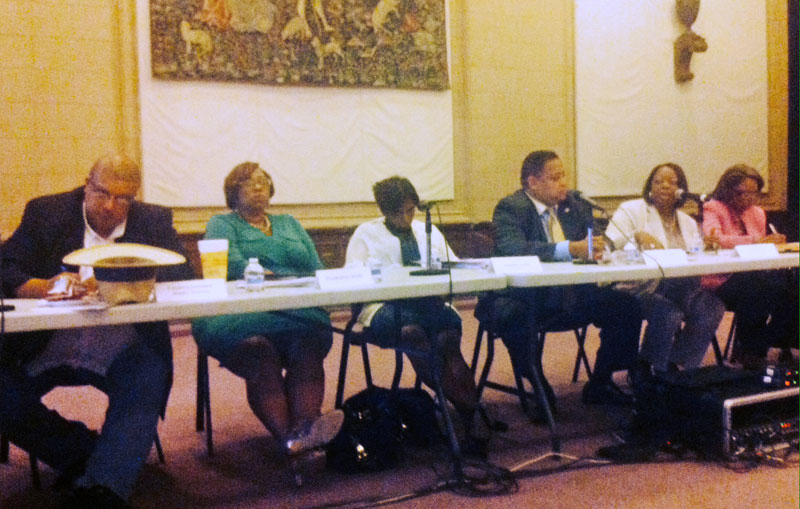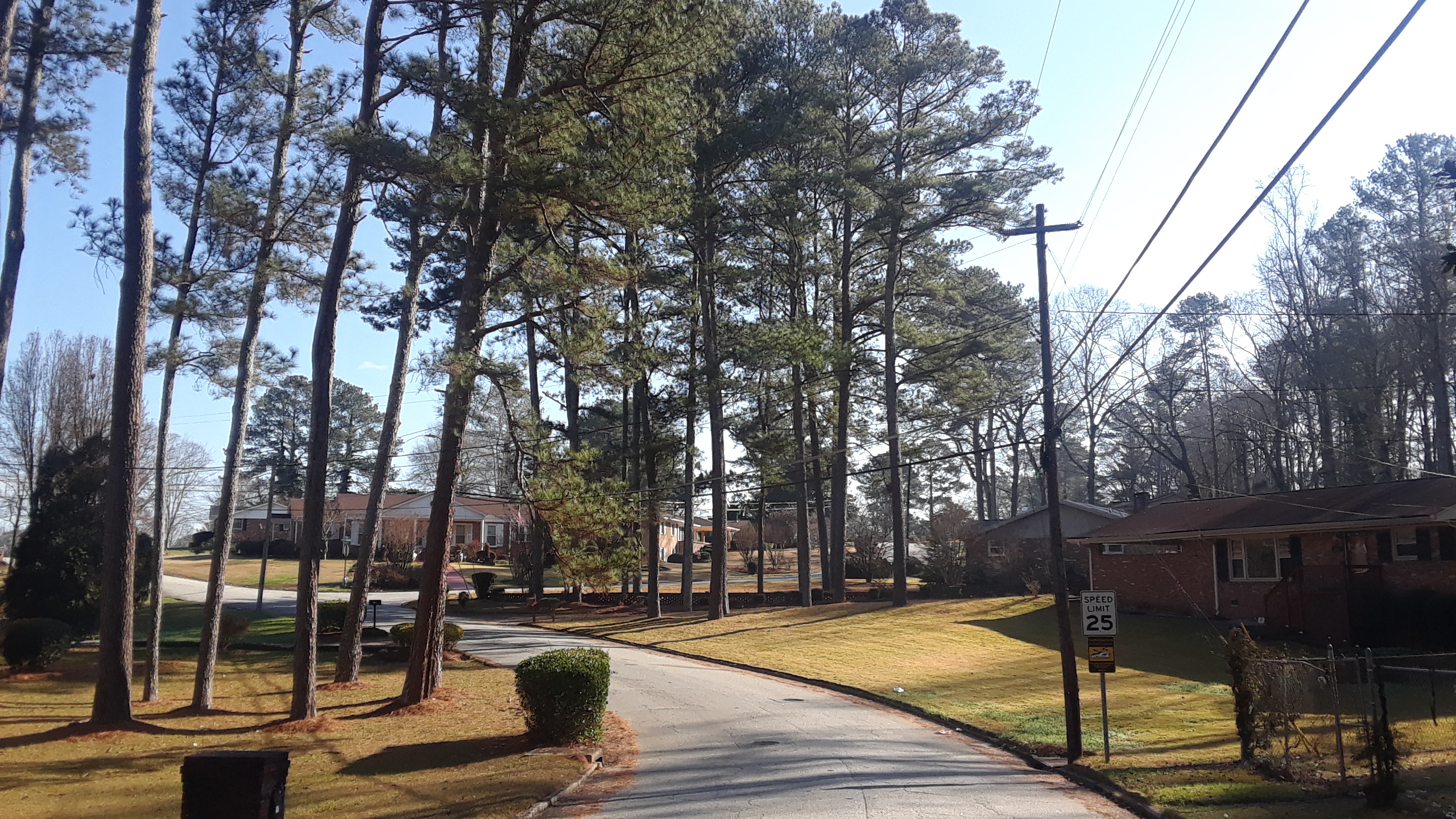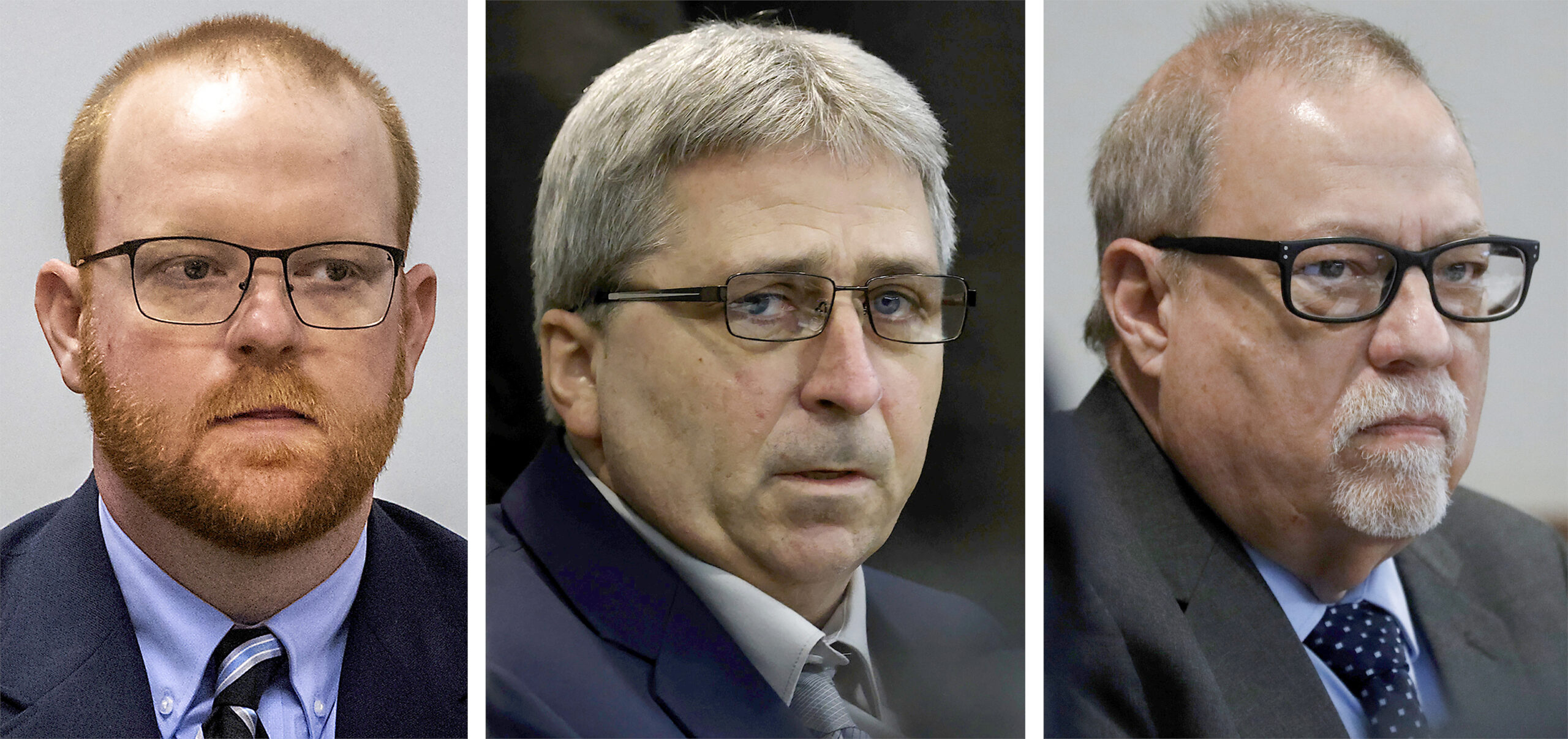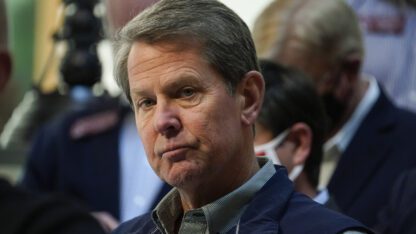Long-Running Tensions on Display During Stadium Impact Meeting

Two historic churches in Atlanta recently agreed to sell their property, allowing the Atlanta Falcons to build a new billion dollar stadium just south of the Georgia Dome.
The focus now shifts to the project’s impact on surrounding neighborhoods and the $30 million in funds set aside to revitalize them.
A committee made up of city officials and community stakeholders has met since July to draft a set of ideas, but long-running tensions have slowed the process.
In 1991, before the construction of the current Georgia Dome, then-mayor Maynard Jackson told the Atlanta Journal-Constitution, “When that Dome opens up it’s not going to be business as usual in Vine City…We want the sidewalks fixed and the streets properly paved to make Vine City as good as any other neighborhood.”
More than twenty years later, Vine City and neighboring English Avenue remain plagued by vacant homes, high unemployment, and crumbling infrastructure.
The lack of trust between neighborhood leaders and Atlanta city officials was on full display at the latest community benefits committee meeting held last Wednesday.
“There’s uneasiness, there’s frustration about this. There has been from the beginning and here we are again,” said Rev. Howard Beckham, president of the English Avenue-Vine City Ministerial Alliance.“I’d like to make a motion that this committee won’t be disbanded and this process will not end until this committee develops a community benefits agreement.”
For neighborhood leaders, a community benefits “agreement,” rather than a “plan,” is key. Legally, an agreement makes the committee’s work binding. In practical terms, it assures locals maintain influence over how the money is spent.
“Reverend Beckham, I’m going to rule your motion out of order because this committee can’t extend its life and it can’t redefine its role,” said At-large City Councilman and committee chair Michael Julian Bond.
But he reassured Beckham it’s his intention to end with an agreement. Mayor Kasim Reed echoed that at a meeting last month. Reed’s representative on the committee, Katrina Taylor Parks, reiterated the mayor’s position, but grew impatient about having to return to the issue.
“It is the intention, as the mayor said before, to have some type of agreement to follow the plan that the community has been involved in. Now we have not hashed that out because we can’t get through the beginning of the plan.”
She said community leaders need to get their priorities straight.
“We have not gotten to the meat of the work,” said Taylor Parks. “The longer we discuss process, the less work we’re going to get done.”
Bond, who represented many of the affected neighborhoods before becoming an at-large councilman, agreed with Taylor Parks’ sentiment.
“It’s about time that my neighborhood and the surrounding areas grew up and decided to do these things for themselves. Stop bickering, stop fighting and just get it done,” said Bond.
But Councilman Ivory Young, who currently represents Vine City and English Avenue, said given past failures, city officials should allow as much time as necessary.
“It may not sit well with some, but too many times…we’ve force-fed specific things and all of us can agree that we’ve not produced the outcomes that we’ve hoped for,” said Young.
Another point of contention at the meeting involved a controversial report commissioned by Invest Atlanta, the city’s economic development arm.
The report, which was prepared by private consulting firm APD Urban Planning and Management and can be found as a PDF here, lays out how best to improve the affected neighborhoods. Invest Atlanta officials have said they want the report to help guide the rest of the committee process.
Community leaders, however, have raised concerns the report doesn’t fully take into account local development ideas. Yvonne Jones, chair of the neighborhood planning unit for Vine City and English Avenue, wants the city to focus less on the report and more on empowering local nonprofits and developers.
“I would say [the report] doesn’t necessarily reflect the real will of the community,” said Jones.
Invest Atlanta Chief Operating Officer Ernestine Garey reassured Jones and other neighborhood leaders their voices were still being heard.
“[The report] is a resource. It doesn’t mean everything that’s in that plan is going to be in the community benefits plan. It is a resource for the committee and the community to use as we are crafting the plan.”
The next committee meeting takes place at 5:30 p.m. October 3rd at the old city council chambers at Atlanta City Hall. (EDIT: The meeting has been rescheduled to October 16th). The community benefits committee process is scheduled to wrap up in the October/November timeframe.
9(MDAxODM0MDY4MDEyMTY4NDA3MzI3YjkzMw004))








